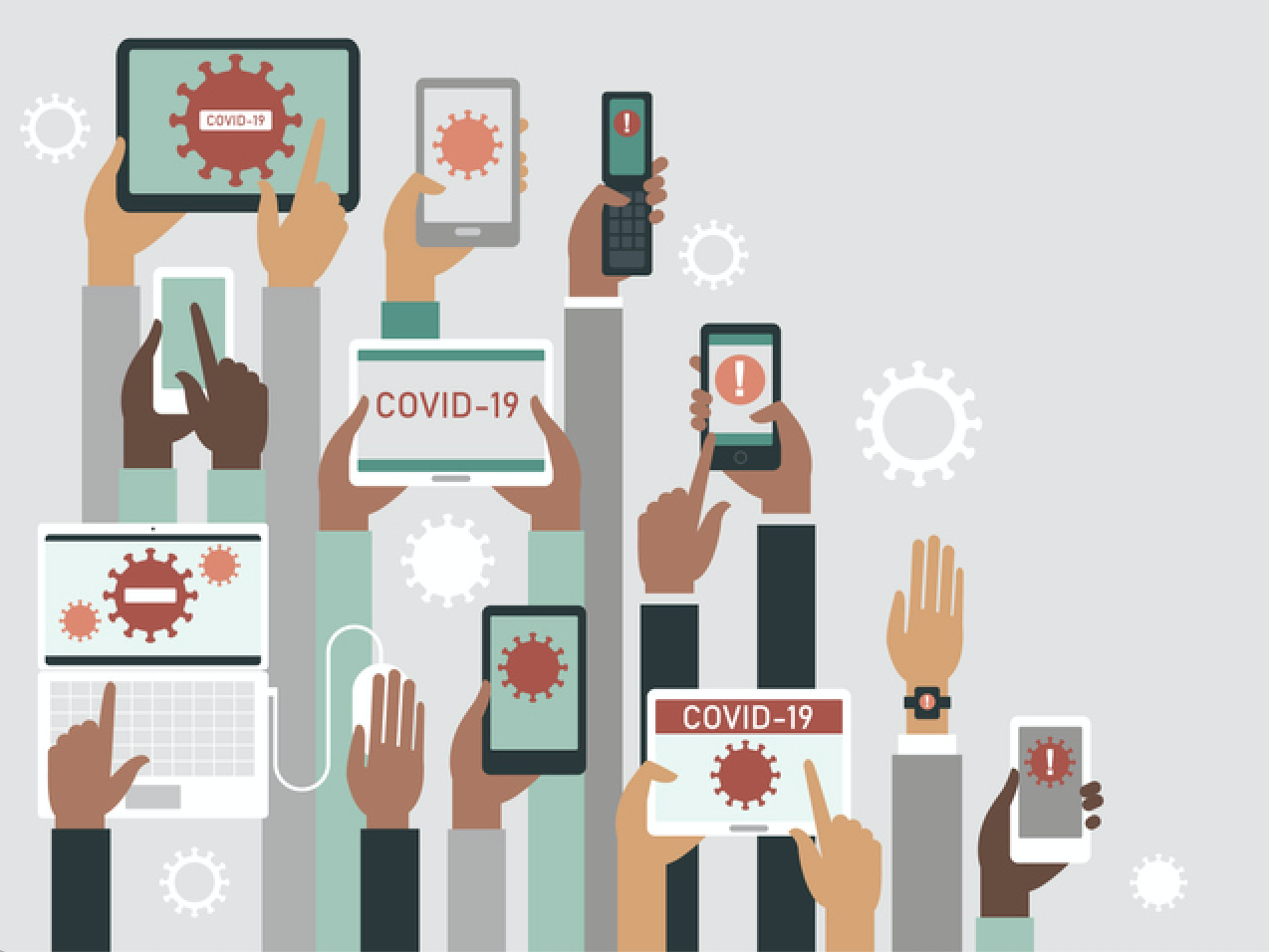I’m Tired of Coronavirus News 24/7! How I’m Handling Burnout
 By Cherise Shockley
By Cherise Shockley
Daily information and statistics about the pandemic mean that the news is constant and can be overwhelming. Here’s how diaTribe’s Community Manager is handling her COVID burnout
I first heard about COVID-19 in January. I was a bit worried since I would soon be traveling to attend the Advanced Technologies and Treatments in Diabetes conference in Madrid, Spain. I began watching and reading news from multiple sources, and I followed social media updates from people around the world. Since then, I – along with the rest of the world – have learned more about the coronavirus pandemic each and every day.
By the second week of March, I was over the news about the pandemic. I found myself mentally weighed down by political fights, school closings, and worries about friends, family, and people around the world losing their jobs or not being about to get diabetes supplies.
I am tired of hearing about COVID-19. I care deeply about people all over the world, with or without diabetes, and with or without coronavirus. However, I want to consume news about the pandemic at my own pace, and not every time I open an app, read emails or log into social media. I imagine many people have felt the same way about this crisis.
As the community manager at diaTribe, I have to strategize, manage, and create posts for social media. I must be aware of what's going in the world, especially when diabetes is involved. So for me, I can’t completely disconnect from the news world.
Social media is a hub not only for social and community interaction but for news and information and opinions – that’s not a bad thing most of the time. But in the current environment, I’ve realized that social media is the primary source of my burnout. To stay healthy, I needed to control the amount of news I was consuming. Here’s what I’ve done to reduce COVID burnout.
First, I had to figure out what information I needed to know as a person with diabetes, a wife, and a mother. I need to stay connected to school news and to local and federal government updates.
Next, I had to find a balance between work and being a diabetes advocate. I found that being connected to the internet and social media 10 hours a day was not healthy, especially during a pandemic. I decided that on weekdays from 8:30 am - 5:30 pm, I would follow and read updates from national and global diabetes non-profits, and I would watch videos from Dr. Anne Peters.
I deleted Facebook and Twitter apps from my phone. I now use Facebook, Twitter, and Instagram for an hour or less after work each day. Before logging onto social media, I ask myself why I am sharing this information. If the content I share does not serve a purpose, I do not post it at all.
I’ve found ways, other than through social media, to connect with the diabetes online community. Instead of hosting the weekly Diabetes Social Media Advocacy (#DSMA) chat on Twitter, I now host virtual meet-ups through Skype. I enjoy seeing the faces of so many people in the community. And on Saturdays and Sundays, I minimize my exposure to social media and the news, and I find joy in missing out.
Last, I need to be mentally available for my family. I start each morning with a simple prayer, then I prepare a to-do list and I am still for five minutes. Throughout the day, I find myself pausing more and taking walking breaks. I’ve swapped out time on social media for quality time with my family and doing things I enjoy.
How are you holding up with information overload during the pandemic? Feel free to email me at community@diaTribe.org – I would love to hear from you.







